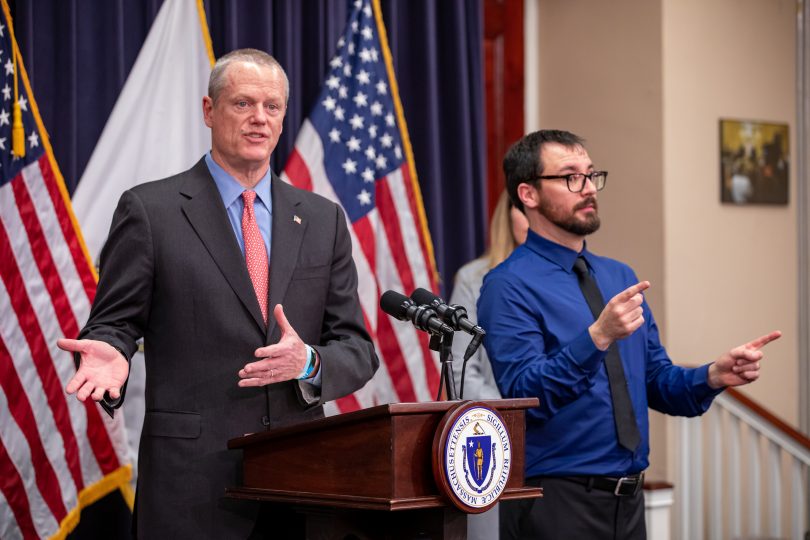By Elias Miller
Boston University News Service
As health professionals brace for a new surge brought on by deadlier coronavirus variants, Massachusetts moved into Phase 4 of its reopening plan on Monday.
Stadiums, arenas and ballparks can now reopen at 12% of their full capacity, provided they first send the Department of Public Health a plan of the safety precautions they intend to take. TD Garden will arrange fans in seating pods, each at least six feet apart, according to the stadium’s website. Fenway Park, which had until recently served as a mass vaccination site, should be able to welcome roughly 4,500 fans in time for Opening Day on Thursday, April 1.
Public events can now hold up to 100 people indoors and 150 people outdoors, but limits on personal gatherings remain unchanged, with a maximum of 25 people allowed in private backyards and no more than ten people inside private residences.
At restaurants, patrons may only be seated at a table for 90 minutes or less. All customers must wear masks at all times, unless they are actively eating or drinking, according to the state’s website. Seated parties — limited to six people — must also be at least six feet away. Self-serve areas like buffet tables are still prohibited.
Before leaving office on Monday, former Mayor Marty Walsh announced Boston would be moving into a “modified” fourth phase, limiting public gatherings to 60 people indoors and 100 people outdoors.
“The City of Boston will not advance beyond the reopening steps outlined today until the citywide testing positivity rate stays below 2.75 percent, as calculated by the Boston Public Health Commission, for two consecutive weeks,” the mayor’s office said in a statement.
The latest positivity rate reported by the BPHC was 3.4% as of the week of March 8.
Meanwhile, officials in Cambridge announced the city would be staying in Phase III, Step 2 “until further notice.”
“The city’s conservative approach to its phased reopening balances our efforts to minimize the public health impacts of COVID-19 with providing vital support to our residents and local business,” Cambridge City Manager Louis A. DePasquale said in a statement.
DePasquale added that the city would reassess its status as it analyzes future data.
Public gatherings in Cambridge are still limited to 50 people indoors and 100 outdoors. Community events sponsored by the city or taking place in its parks will remain restricted for the foreseeable future.
This week, Baker also downgraded the state’s travel order to a simple advisory: those traveling from out-of-state are now encouraged — not required — to quarantine for 10 days. Exempt from the advisory are those who are fully vaccinated and asymptomatic, have received a negative test within 72 hours of their arrival or were outside state lines for fewer than 24 hours.
Previously, a failure to comply with the order carried a $500 fine each day the traveler was found in violation.
The number of confirmed cases in the state has seen an 8% increase in the past 14 days, while deaths in that same period are trending downward by 21%, according to state and county reports tallied by NBC News. Most states around the country have seen decreases in the same period.
COVID-19 restrictions across the United States have largely eased. In all but seven states, businesses are mostly open, and there are no mask restrictions in 15 states, according to a New York Times tally.
But epidemiologists warn that the B.1.1.7 variant of the virus, often referred to as the UK variant, may bring about a further fork in the road to recovery.
On March 19, Eric Feigl-Ding, an epidemiologist and health economist of the Federation of American Scientists, tweeted about a potential fourth wave wrought by this variant:
B.1.1.7 is also deadlier. It poses a 61% higher risk of 28-day mortality, according to a March 15 study by the scientific journal, Nature, compared to the original virus.
“Almost every epidemiologist agrees a 4th surge is coming,” Feigl-Ding tweeted. “It is almost inevitable. The only question is how bad will it be. Maybe [it will not be] that bad if we vaccinate faster.”





